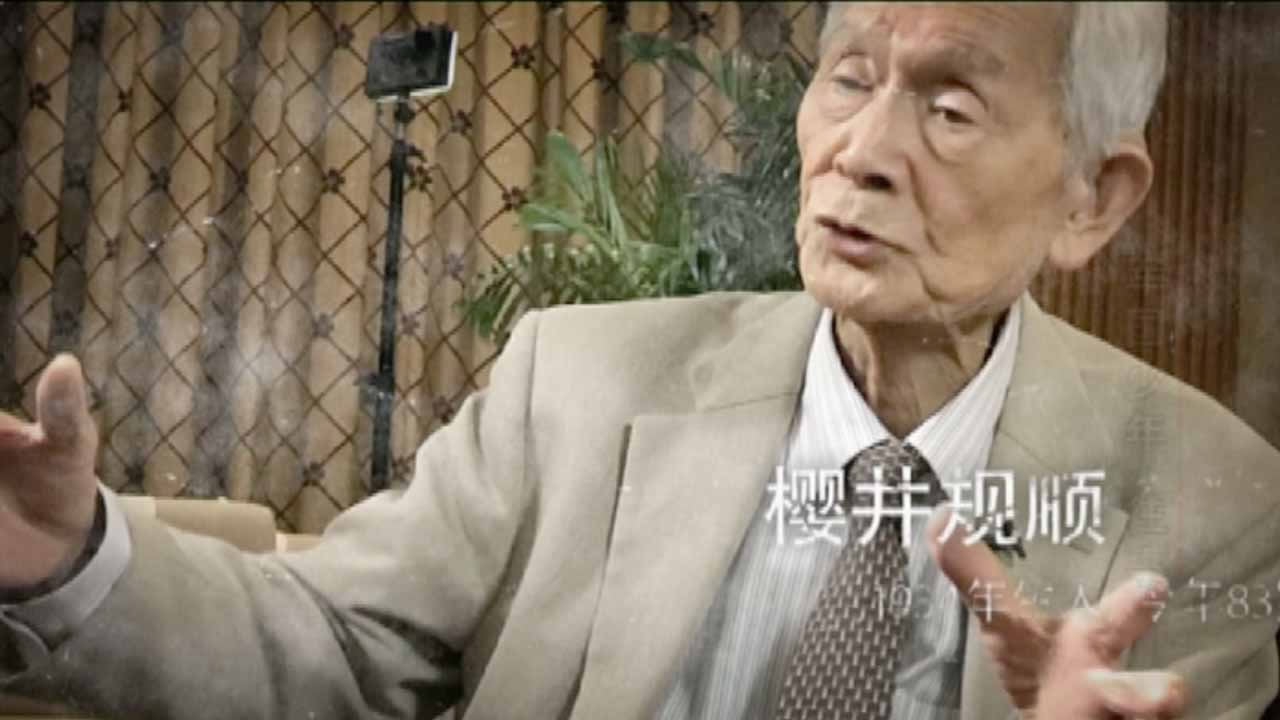
China
14:51, 12-Dec-2017
Memories of a Militarist Youth: Settlers given 'wine mixed with potassium cyanide'
CGTN

The 80th Memorial Day of the Nanjing Massacre is coming up on Wednesday. To mourn this tragic event, one of the darkest history of mankind, let everyone remember the past and cherish peace. CCTV documentaries have interviewed some Japanese WWII survivors, “Young Militarists” who promised to live or die together with the Japanese Empire but found themselves abandoned by their country after Japan was defeated.
Today let us hear the story of Noriyoshi Sakurai.
Dispatching groups of migrants was Japan’s way of accelerating its occupation of northeast China. In 1936, the Japanese government had set itself the target of relocating 1 million families within 20 years. The migration was organized on the basis of villages and townships. Noriyoshi Sakurai and his family found themselves being moved as part of a relocation from Fuji-gun. The five jongbo of land the family was given was the equivalent of five hectares. Along with the land came two Chinese laborers.
“My family obtained 5 jongbo of land where we planted corn, soybeans and flax,” Noriyoshi Sakurai said.
Young Noriyoshi Sakurai also couldn’t have known that much of the farmland the Japanese immigrants were given had either been taken by force or bought at well below its true value. Between 1939 and 1944, more than 50,000 Chinese farming households in the country’s northeast were deprived of their land, with many of them becoming tenants of the Japanese. Noriyoshi Sakurai may not have been aware of this, but one thing he and his brother were sure of, was that one day they’d be expected to sacrifice their lives for their country.
"Once, when my brother and I were on the railway between Manchukuo and Korea, I asked him, 'What’s your favorite color?'"
"Red."
"When will you die?"
"At 20."
"He was only 13 or 14 at the time. But he fully understood that he’d join the army and go to war at 20, and die on the battlefield. That was what we were taught.”
But his story does not end there; it is the beginning of a long personal involvement in promoting Sino-Japanese trade.
There are lots of people who witnessed history like Noriyoshi Sakurai.
Looking back now, 80 years on, what do they remember of that time? What do they think of today’s world? And what kind of world do they want to bequeath to Japan and China going forward?
Let's hear their recounting of the history together.

SITEMAP
Copyright © 2018 CGTN. Beijing ICP prepared NO.16065310-3
Copyright © 2018 CGTN. Beijing ICP prepared NO.16065310-3